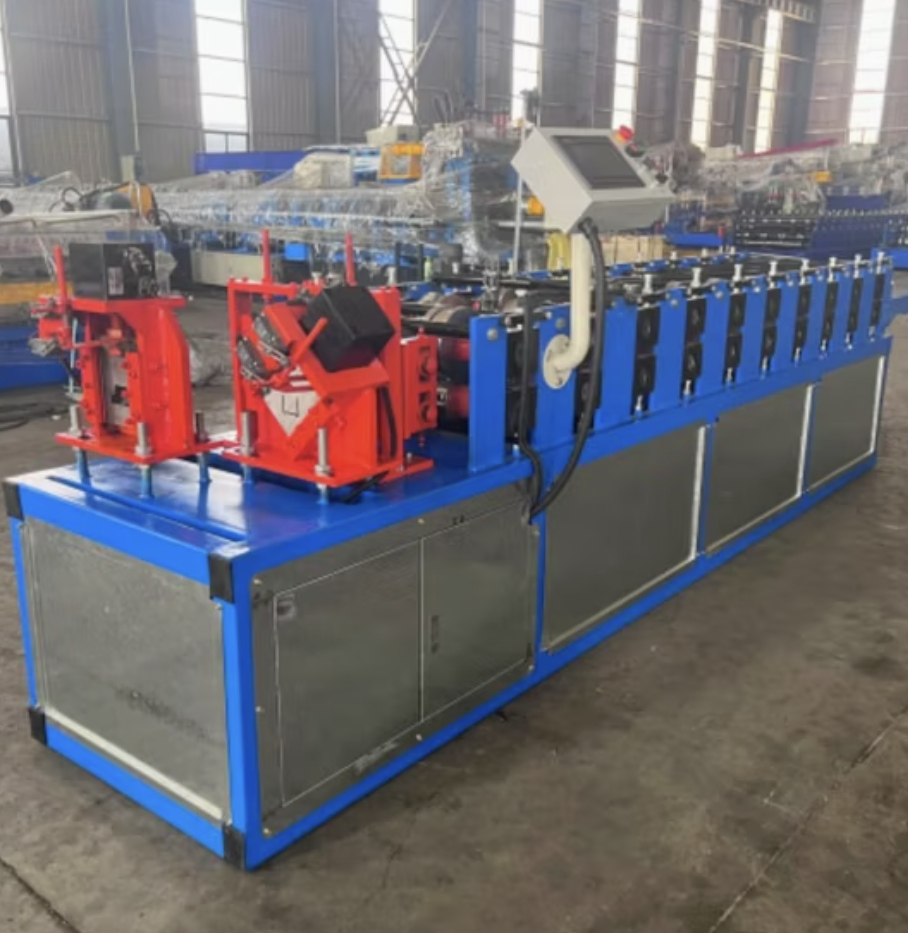To express an interest in this machine please submit the form below.

Not Sure What Machine You Need?
Select Your Profile, We'll Match It
Choose your desired profile drawing, and let Machine Matcher connect you with the best roll forming machine tailored to your needs.
Browse Profiles
Light steel roll forming machines are essential equipment for industries that require precise and continuous steel profile production. Commonly used in construction, automotive, and manufacturing, these machines offer efficient and reliable solutions for creating steel profiles with complex cross-sections. Light steel roll forming machines are popular for producing components like light steel frames, studs, channels, and other structural profiles.
A light steel roll forming machine transforms flat steel coils into desired shapes through a continuous process of bending and rolling. This process is ideal for producing high-quality, uniform steel profiles that meet exact specifications. Light steel roll forming machines are typically engineered for high-speed operation, making them suitable for large-scale production.
Key elements of a light steel roll forming machine include rollers, cutting systems, feeding units, and a programmable logic controller (PLC) for precise control. With modern advancements, these machines can produce steel profiles in various shapes, thicknesses, and lengths to accommodate diverse industrial needs.
Light steel roll forming machines are versatile, allowing production of profiles used in various industries. They are especially beneficial for manufacturing:
Q1: What types of profiles can a light steel roll forming machine produce?
A1: Light steel roll forming machines can produce a variety of profiles, including studs, tracks, channels, furring channels, and custom-designed profiles. With customizable roller setups, these machines can accommodate specific design needs and industry requirements.
Q2: How does the PLC system benefit the roll forming process?
A2: The PLC system provides precise control over the forming process, allowing users to set parameters such as profile length, material thickness, and production speed. The system enhances efficiency, reduces human error, and simplifies the operation through an intuitive touch screen interface.
Q3: What material thickness can the machine handle?
A3: Light steel roll forming machines are typically designed to handle material thicknesses ranging from 0.5 mm to 3.0 mm, making them ideal for lightweight yet durable steel profiles.
Q4: What is the maintenance requirement for a light steel roll forming machine?
A4: Regular maintenance includes checking roller alignment, lubricating moving parts, inspecting electrical systems, and ensuring safety guards are operational. Cleaning the rollers and cutting mechanisms is also essential for consistent production quality.
Q5: How do hydraulic and mechanical cutting systems differ?
A5: Hydraulic cutting systems use hydraulic power for smooth, precise cuts and are ideal for thicker materials or when high precision is necessary. Mechanical cutting systems, on the other hand, are more cost-effective and suitable for lighter, thinner profiles where high cutting force isn’t required.
Q6: What industries commonly use light steel roll forming machines?
A6: Industries such as construction, infrastructure, automotive, and commercial framing commonly use light steel roll forming machines. They are particularly popular in construction for creating structural frames and partitions due to the durability and strength of the profiles they produce.
Q7: Can this machine be customized to produce non-standard profiles?
A7: Yes, most light steel roll forming machines can be customized to produce unique profiles by adjusting roller dies and other components. Manufacturers can create machines tailored to specific profile shapes and sizes as needed.
Q8: What is the typical lifespan of a light steel roll forming machine?
A8: With proper maintenance, a high-quality light steel roll forming machine can have a lifespan of 10-15 years or more. The durability of components like rollers and cutting systems plays a significant role in longevity.
Light steel roll forming machines are a valuable asset for industries requiring fast, reliable production of light steel profiles. These machines deliver precision, durability, and flexibility, which make them essential for producing structural components in construction and other industries. Whether you need standardized profiles or custom designs, a light steel roll forming machine can be tailored to meet your production requirements.
4o
Copyright 2026 © Machine Matcher.